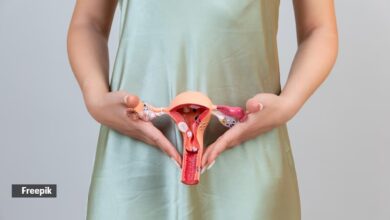Alcohol isn’t the villain, you are, says Golmaal actor Ashwini Kalsekar

Ashwini Kalsekar has shared a strong opinion on those who blame alcohol for their reckless actions. She believes that intoxication should not be used as an excuse for bad behaviour and that personal accountability is key.
Addressing this issue in an interview with Hauterrfly, the Golmaal actor stated, “Today I want to say something to all those people who say that, ‘I lost my control because I was intoxicated. I was drunk or I was on drugs or I was intoxicated some medicine, and I lost my control.’ I would beat all those men in the worst way because no matter how drunk you are, you don’t go and sleep next to your mother. You go to your wife. You don’t sleep beside your daughter nor your ser, maa ke upar taang daal ke nahi sota hai na? (You don’t sleep with your leg over your mother, do you?)”
She continued, “Don’t give this reason. Tumhare andar shaitan hai, usko maaro (The devil is within you, get rid of it). Don’t take the support of alcohol. Alcohol has done nothing to you. It was already in your mind; alcohol just brought out the beast in you. In Marathi, this is called vikruti — a dortion that was within you and emerged after intoxication.” She stressed that people who do this must opt for mental health support. “It is a disease,” she stated.
Story continues below this ad
Her statement raises an important debate: how does alcohol impact impulse control and decision-making in individuals, and is it fair to completely dismiss its influence on behaviour?
Neha Cadabam, senior psycholog and executive director at Cadabams Hospitals, tells , “Alcohol is known to affect the brain’s frontal lobe — the region responsible for impulse control and decision-making. When alcohol is consumed, it impairs the brain’s ability to regulate impulses, evaluate consequences, and exercise self-control. This means that under the influence, individuals may act on sudden urges without fully considering the repercussions.”
However, she adds that while alcohol does reduce inhibitions and can impair judgment, “it is not solely responsible for one’s actions. Personality traits, learned behaviors, and environmental factors all play significant roles.” It is important to acknowledge alcohol’s physiological impact while also recognising that individuals have the capacity to manage their actions, even in challenging situations. Therefore, completely dismissing alcohol’s influence oversimplifies a complex interplay between biology and personal responsibility.
Why do some people exhibit aggressive or uninhibited behaviour after consuming alcohol, while others remain calm?
The variation in behaviour following alcohol consumption is influenced several factors. Cadabam informs that genetic predispositions, personal temperament, and even past experiences all contribute to how one reacts under the influence. Some individuals may have a lower tolerance for alcohol or a predisposition towards aggression, which can be amplified when their inhibitions are lowered.
“Additionally, the context in which alcohol is consumed — such as social settings, stress levels, and cultural expectations — can further dictate behavioural responses. For some, alcohol may serve as a catalyst that brings underlying traits to the forefront, while for others, it may simply relax them without triggering aggressive impulses. These individual differences underscore that alcohol’s effects are not uniform but vary significantly from person to person,” she notes.






